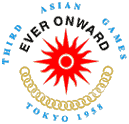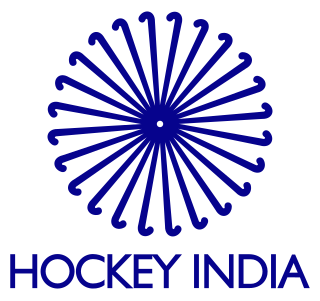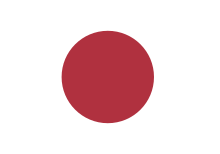
The 1951 Asian Games, officially known as the First Asian Games, was a multi-sport event celebrated in New Delhi, India from 4 to 11 March 1951. The Games received names like First Asiad and 1951 Asiad. A total of 489 athletes representing 11 Asian National Olympic Committees (NOCs) participated in 57 events from eight sports and discipline. The Games was the successor of the Far Eastern Games and the revival of the Western Asiatic Games. The 1951 Asiad were originally scheduled to be held in 1950, but postponed until 1951 due to delays in preparations. On 13 February 1949, the Asian Games Federation was formally established in Delhi, with Delhi unanimously announced as the first host city of the Asian Games.

The 2002 Asian Games, officially known as the XIV Asian Games and also known as Busan 2002, were an international multi-sport event held in Busan, South Korea from September 29 to October 14, 2002. Due schedule impediments the football tournament started two days before the opening ceremonies.

The 1958 Asian Games, officially the Third Asian Games and commonly known as Tokyo 1958, was a multi-sport event held in Tokyo, Japan, from 24 May to 1 June 1958. It was governed by the Asian Games Federation. A total of 1,820 athletes representing 20 Asian National Olympic Committees (NOCs) participated in the Games. The program featured competitions in 13 different sports encompassing 97 events, including four non-Olympic sports, judo, table tennis, tennis and volleyball. Four of these competition sports – field hockey, table tennis, tennis and volleyball – were introduced for the first time in the Asian Games.

The India men's national field hockey team represents India in international field hockey competitions, and is governed by Hockey India. The team was formerly under the control of Indian Hockey Federation. India was the first non-European team to be a part of the International Hockey Federation. India's hockey team is the most successful team ever in the Olympics, having won a total of eight gold medals – in 1928, 1932, 1936, 1948, 1952, 1956, 1964 and 1980.

The Pakistan national field hockey team represents Pakistan in international field hockey. Having played its first match in 1948, it is administered by the Pakistan Hockey Federation (PHF), the governing body for hockey in Pakistan. It has been a member of the International Hockey Federation (FIH) since 1948 and was founding member of the Asian Hockey Federation (ASHF), which was formed in 1958. Pakistan is one of the most successful national field hockey teams in the world with a record four Hockey World Cup wins.

The Republic of Korea first participated at the Olympic Games in 1948, and has sent athletes to compete in every Summer Olympic Games since then, except for 1980 which they boycotted. South Korea has also participated in every Winter Olympic Games since 1948, except for the 1952 games.

Japan participated and hosted the 1994 Asian Games held in Hiroshima, Japan from October 2, 1994 to October 16, 1994. This country was ranked 2nd with 64 gold medals, 75 silver medals and 79 bronze medals with a total of 218 medals to secure its second spot in the medal tally.

Japan participated in the 1998 Asian Games held in Bangkok, Thailand from December 6, 1998 to December 20, 1998. This country was ranked 3rd with 52 gold medals, 61 silver medals and 68 bronze medals with a total of 181 medals to secure its third spot in the medal tally.

Japan has competed at the Asian Games since their inception in 1951, held in New Delhi, India. The National Olympic Committee of Japan, Japanese Olympic Committee, is responsible for organizing Japan's participation in the Asian Games. The Committee was established in 1911 and recognized by the International Olympic Committee in 1912; it is also the oldest Asian National Olympic Committee. Japan has a distinguished achievement among all Asian sport teams, being the only one to have won at least 20 gold medals at every Asian Games.

At the 2005 East Asian Games, the athletics events were held at the Estádio Campo Desportivo in Macau, People's Republic of China from 1–4 November. A total of 45 events were contested, of which 23 by male and 22 by female athletes. China easily topped the medal table, winning 26 of the 45 available gold medals and accounting for half of the total female medallists. Japan won 46 medals, 16 of them gold, while South Korea was a clear third with a total of 21 medals. No athletes from either Guam or Mongolia reached the podium.

The Philippines is a member of the South East Asian Zone of the Olympic Council of Asia (OCA), and has participated in the Asian Games since their inception in 1951. The Philippine Olympic Committee, established in 1911, and recognized in 1929 by the International Olympic Committee, is the National Olympic Committee for Philippines.

At the 2001 East Asian Games, the athletics events were held in Osaka, Japan from 23 to 26 May 2001. A total of 45 events were contested, of which 23 by male and 22 by female athletes. All events were held at the Nagai Stadium, with the exception of the racewalking and half marathon events. A team of Australian athletes took part in the competition but they were excluded from the medal tally. This was the last time that Kazakhstan competed in the competition.
Athletics at the 2010 Asian Games was held in Guangzhou, China from 21 to 27 November 2010. A total of 47 events were contested – 24 by men and 23 by women – matching the Olympic athletics programme. The 42 track and field events on the programme were hosted at the Aoti Main Stadium while the marathons and racewalking competitions took place around the city's University Town. Sixteen Asian Games records were broken during the seven-day competition.

South Korea was the host nation of the 2002 Asian Games held in Busan from September 29 to October 14, 2002. South Korea was represented by the Korean Olympic Committee, and the South Korean delegation was the largest in this edition of the Asian Games. The delegation of 1,008 people included 770 competitors – 460 men, 310 women – and 238 officials. North Korea competed for the first time in an international sporting event hosted by South Korea. Both nations marched together at the opening ceremony with a Korean Unification Flag depicting the Korean Peninsula as United Korea.
Tennis competitions at the 2010 Asian Games in Guangzhou, China were held from November 13 to November 23 at the Guangdong Olympic Tennis Centre.

The 1958 Asian Games, officially known as the Third Asian Games, was a multi-sport event held in Tokyo, Japan, from 24 May to 1 June 1958. A record total of 1,820 athletes representing 20 Asian National Olympic Committees (NOCs) participated in 13 sports divided into 97 events. The tradition of the torch relay was introduced for the first time in the Asian Games, and the Games cauldron was ignited by the first Japanese Olympic gold medallist and the first Asian Olympic champion in an individual event, Mikio Oda.

The 1974 Asian Games was a multi-sport event held in Tehran, Iran from September 1, 1974, to September 16, 1974. This was the first time that Asian Games were celebrated in any Middle East country. A total of 3,010 athletes selected from 25 Asian National Olympic Committees participated in 16 sports divided into 202 events. The number of participating countries was the greatest in Asian Games history, eighteen nations competed in Bangkok, host of the 1970 Asian Games. Fencing, gymnastics (artistic) and women's basketball were included for the first time; while sailing—which made its debut in the previous Asian Games—was not included, however since 1978, sailing is a part of the Asian Games sports.
Gymnastics was contested at the 1974 Asian Games, held in Tehran, Iran from September 1, 1974, to September 16, 1974. It was the first time that gymnastics was included as the medal sport in the Asian Games, and only artistic events were contested. In the Games, only four participating National Olympic Committees (NOCs) succeeded in winning any medal. China lead the medal table, with overall 18 medals, Japan finished second with four gold, and total nine medals. South Korea, although won only four total medals but its two gold helped it to clinch third position in final standings, while North Korea with one gold and 11 overall medals finished last.
At the 2013 Asian Youth Games, the athletics events were held in Nanjing, Jiangsu province in China from 19–22 August. A total of 34 events were contested, split evenly between the sexes. The Nanjing Olympic Sports Centre was the host stadium for the athletics – this was the venue's second hosting of a multi-sport event after the 2005 National Games of China.

Japan participated at the 2018 Asian Para Games in Jakarta, Indonesia from 6 to 13 October 2018. Its delegation was composed of 303 athletes. Athletes from Japan achieved a total of 198 medals, and finished fourth at the medal table behind China, South Korea, and Iran.














